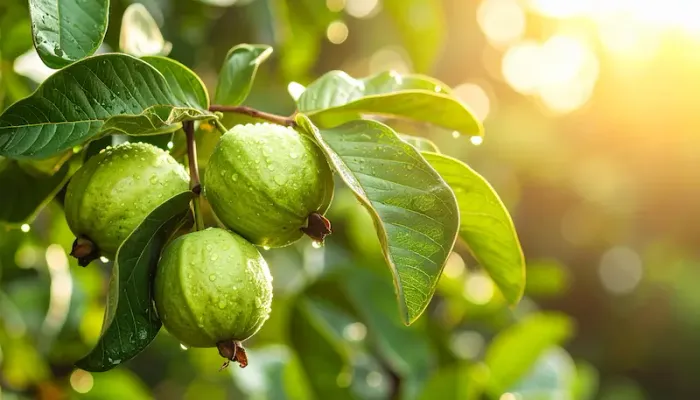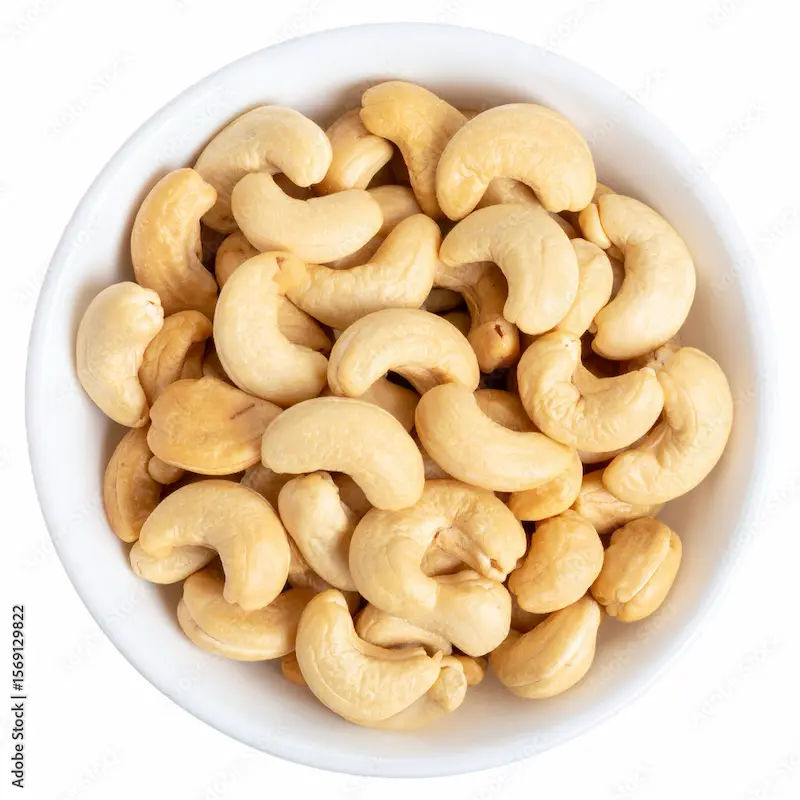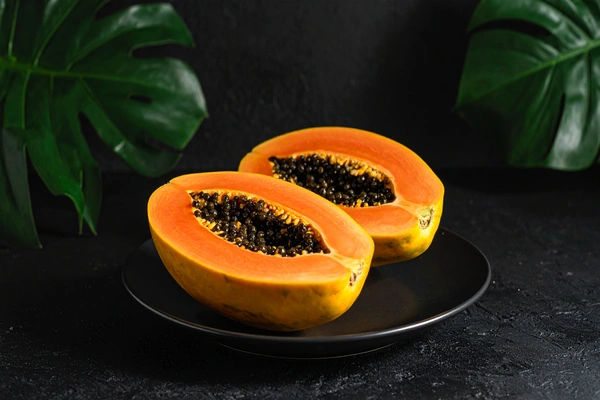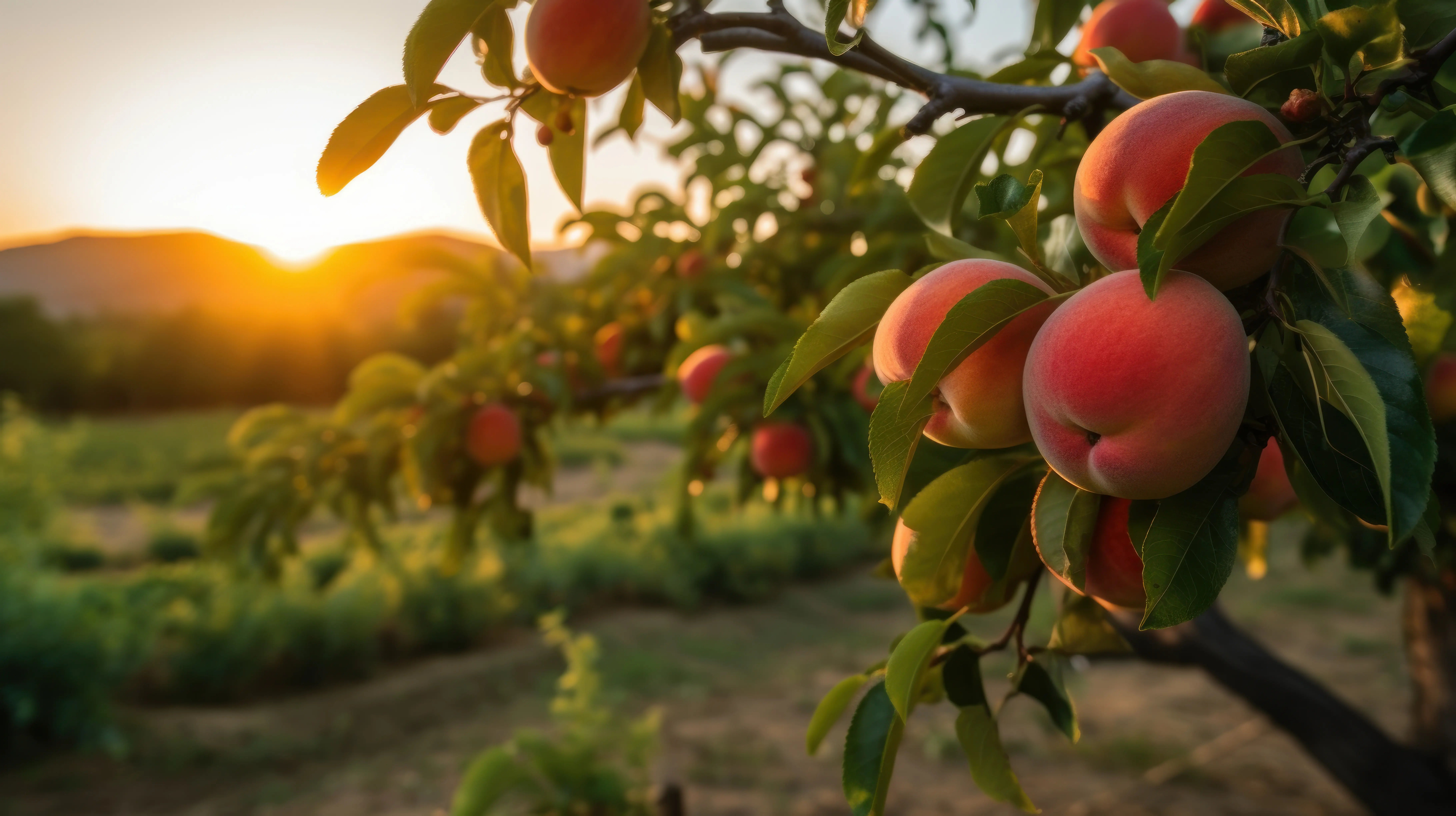Guava Fruit Benefits and Surprising Uses of Guava Leaves
Explore guava benefits, guava leaves tea, and how this immunity boosting fruit supports digestion, heart health, and everyday wellness—plus safe ways to use it.

Written by Dr. Md Yusuf Shareef
Reviewed by Dr. D Bhanu Prakash MBBS, AFIH, Advanced certificate in critical care medicine, Fellowship in critical care medicine
Last updated on 12th Feb, 2026

Introduction
If you’re looking for a tasty way to support everyday health, guava is a great place to start. This tropical fruit is naturally rich in vitamin C, fiber, and antioxidants. In many cultures, guava leaves tea is also a traditional home remedy for digestion and wellness. In this guide, you’ll learn science-backed guava benefits, simple ways to enjoy it as one of your go-to immunity boosting fruits, and what to know before trying guava leaves tea.
What Makes Guava Special? Nutrition at a Glance
Guava stands out among fruits for its nutrient density. While exact amounts vary by variety and ripeness, guava typically provides:
• Vitamin C: An essential nutrient for immune function and collagen formation (important for skin, gums, and wound healing).
• Dietary fiber: Supports healthy digestion, helps you feel full, and contributes to heart health.
• Potassium: A mineral that helps maintain normal blood pressure when part of a balanced diet.
• Folate and other B vitamins: Support energy metabolism and cell growth.
• Antioxidants: Pink-fleshed guavas contain carotenoids like lycopene, and all guavas offer polyphenols that help protect cells from oxidative stress.
Big picture: Guava delivers a lot of nutrition for relatively few calories, making it a smart addition to a balanced eating pattern.
Science-Backed Guava Benefits
Guava benefits come from nutrients that are well studied across many fruits and vegetables. Here’s how guava can fit into a healthy lifestyle.
Immune Support: Vitamin C Done Right
• Guava is naturally high in vitamin C, a nutrient known to support the immune system and help your body form collagen. Vitamin C also acts as an antioxidant, helping protect your cells.
• While no single food can prevent illness, regularly eating vitamin-C-rich fruits like guava can support normal immune function as part of an overall healthy diet and lifestyle.
Digestive Health: Fiber for Regularity and Comfort
• Guava’s fiber supports healthy digestion by adding bulk to stool and promoting regularity.
• Fiber also feeds beneficial gut bacteria, which can support overall gut health.
• If you’re not used to high-fiber foods, increase your portion sizes gradually and drink enough water to avoid bloating.
Heart Health: Fiber, Potassium, and Plant Compounds
• Dietary fiber helps lower LDL (“bad”) cholesterol levels.
• Potassium can help maintain healthy blood pressure by balancing the effects of sodium when consumed as part of a well-rounded diet.
• Antioxidants in guava may help reduce oxidative stress, a factor in cardiovascular health. Emphasize overall eating patterns: fruits, vegetables, whole grains, lean proteins, and healthy fats.
Blood Sugar Support: The Role of Fiber
• Whole fruit offers fiber that slows the absorption of sugar, which can help reduce blood sugar spikes compared with low-fiber, sugary foods.
• If you live with diabetes or prediabetes, monitor portions and pair fruit with protein or healthy fat (like yogurt or nuts) to smooth out blood sugar responses.
• Guava leaf extracts have been studied for their effect on post-meal blood glucose in small trials. See the “Guava Leaves Tea” section below for details and precautions.
Skin, Collagen, and Wound Healing
• Vitamin C supports collagen production, which is essential for skin structure, wound healing, and healthy gums.
• Eating a variety of colorful fruits, including guava, can support overall skin health, especially when combined with sun protection, sleep, and hydration.
Consult a Top General Physician
Guava Leaves Tea: Uses, What We Know, and How to Brew?
What Is Guava Leaves Tea?
• Guava leaves tea is made by steeping the leaves of the Psidium guajava plant in hot water. It’s used traditionally in parts of Asia, Latin America, and Africa for digestive comfort and general wellness.
What Does the Research Say?
• Early research (including small human studies and lab research) suggests guava leaf preparations may:
• Modestly reduce post-meal blood sugar levels.
• Offer antimicrobial effects that could be relevant to oral health or minor digestive upset.
• However, high-quality clinical evidence remains limited. Guava leaves tea should not replace prescribed treatment for diabetes, infections, or any medical condition. Always talk to your healthcare professional before using guava leaf products if you have a medical condition or take medication.
Potential Everyday Uses (With Caution)
• After-meal support: Some people drink guava leaves tea after meals rich in refined carbs. Evidence is preliminary.
• Digestive comfort: Traditionally used for mild, occasional diarrhea or upset stomach. Seek medical advice for persistent symptoms, dehydration, high fever, or symptoms in children or older adults.
• Oral rinse: Some use cooled tea as a gentle mouth rinse for freshness due to potential antimicrobial effects. This is not a substitute for dental care.
How to Make Guava Leaves Tea at Home?
Choose your leaves: Use fresh, thoroughly washed young leaves from a pesticide-free source or a reputable dried-leaf product labeled for food/herbal use.
Simple recipe:
• Add 1–2 teaspoons of dried guava leaves (or 6–8 fresh leaves, torn) to 2 cups (about 500 mL) of water.
• Bring to a gentle simmer for 10–15 minutes, then remove from heat.
• Steep another 5 minutes, strain, and let cool slightly.
• Optional flavor: Add a slice of ginger, lemon, or a cinnamon stick. Avoid excessive sweeteners if you’re watching blood sugar.
• Start small: Begin with 1 cup to see how you feel. There is no standardized dose. If you’re pregnant, breastfeeding, have a chronic condition, or take medication, speak with your clinician before using.
Taste Tips: Guava leaves tea has a mild, herbal, slightly bitter taste. Brighten it with citrus or mint, or blend with a naturally caffeine-free tea like rooibos.
Who Should Be Careful With Guava or Guava Leaves Tea?
• Pregnancy and breastfeeding: There isn’t enough reliable safety data on guava leaf products during pregnancy or lactation. Stick to food amounts of guava fruit and consult your clinician before using guava leaves tea or supplements.
• Diabetes and blood sugar medications: Because guava leaf extracts may affect post-meal blood sugar, they could theoretically add to the effect of diabetes medications and increase the risk of low blood sugar. Monitor closely and consult your healthcare professional.
• Blood pressure and kidney issues: Guava fruit contains potassium. Most people benefit from potassium-rich foods, but those with kidney disease or certain medical conditions may need to limit potassium. Follow your clinician’s advice.
• Allergies and sensitivities: Fruit allergies are possible. If you’ve reacted to guava before, avoid it. Introduce new herbal teas slowly to watch for sensitivities.
• Quality and contamination: Only use guava leaves from a trusted, food-grade source. Avoid leaves that may have been sprayed with pesticides or collected near roads. Wash fruit and leaves thoroughly.
Simple, Delicious Ways to Enjoy More Guava
• Fresh snack: Eat ripe guava like an apple. You can enjoy the peel and seeds; wash well and slice.
• Fruit salad upgrade: Combine guava with citrus, berries, and mint for a colorful bowl.
• Smoothies: Blend guava with yogurt, spinach, and lime for a creamy, tangy drink. Add chia or oats for extra fiber.
• Savory salsas: Mix chopped guava with tomatoes, red onion, cilantro, and jalapeño for a bright salsa to serve over fish, tofu, or beans.
• Breakfast bowls: Top oatmeal or Greek yogurt with sliced guava, walnuts, and a sprinkle of cinnamon.
• Hydration help: Add guava slices and mint to a water pitcher for refreshing infused water.
• About sweets: Guava paste and jams are delicious but can be high in added sugar. Enjoy them occasionally and focus mainly on the whole fruit.
Guava vs. Other Immunity-Boosting Fruits: Variety Wins
• Guava stands out for vitamin C and fiber, but it’s not the only helpful choice. Citrus, kiwi, strawberries, papaya, and berries also offer vitamin C and antioxidants.
• The most important step is consistency and variety. Aiming for several servings of fruits and vegetables daily, as part of a balanced diet and active lifestyle, is a proven way to support overall health and immune function.
Smart Shopping, Storage, and Prep Tips
• Picking ripe guava: Look for fruits that yield slightly to gentle pressure and smell fragrant. Skin color ranges from green to yellow depending on variety; slight softness and aroma are better ripeness cues than color alone.
• Storing: Keep unripe guava at room temperature until it softens; then refrigerate and use within a few days.
• Prepping: Rinse, trim ends, and slice. You can eat the peel and seeds, or scoop out the seeds if you prefer a smoother texture.
• Food safety: Wash cutting boards and knives after cutting raw meat before using them for fruit. If you make guava leaves tea, use clean equipment and potable water.
Putting It All Together
• For most people, enjoying guava fruit regularly is a simple, delicious way to add vitamin C, fiber, and antioxidants to your day.
• Guava leaves tea may offer additional benefits, but evidence is still limited. If you choose to try it, start small and talk with your healthcare professional—especially if you take medications or have a health condition.
• Focus on overall patterns: a variety of fruits and vegetables, whole grains, lean proteins, healthy fats, movement, quality sleep, and stress management. Guava fits beautifully into that bigger picture.
Consult a Top General Physician
Consult a Top General Physician

Dr. Chethan T L
General Physician/ Internal Medicine Specialist
5 Years • MBBS, MD, DNB (General Medicine)
Bengaluru
Apollo Medical Center, Marathahalli, Bengaluru

Dr. Rajib Ghose
General Physician/ Internal Medicine Specialist
25 Years • MBBS
East Midnapore
VIVEKANANDA SEBA SADAN, East Midnapore

Dr. Md Yusuf Shareef
General Practitioner
8 Years • MBBS
Hyderabad
Apollo 24|7 Clinic, Hyderabad

Dr Syed Mizra M
General Physician/ Internal Medicine Specialist
2 Years • MBBS
Bengaluru
PRESTIGE SHANTHINIKETAN - SOCIETY CLINIC, Bengaluru

Dr. Shamanth Y B
General Physician/ Internal Medicine Specialist
5 Years • MBBS
Bengaluru
Apollo Medical Center, Marathahalli, Bengaluru
(25+ Patients)
Consult a Top General Physician

Dr. Chethan T L
General Physician/ Internal Medicine Specialist
5 Years • MBBS, MD, DNB (General Medicine)
Bengaluru
Apollo Medical Center, Marathahalli, Bengaluru

Dr. Rajib Ghose
General Physician/ Internal Medicine Specialist
25 Years • MBBS
East Midnapore
VIVEKANANDA SEBA SADAN, East Midnapore

Dr. Md Yusuf Shareef
General Practitioner
8 Years • MBBS
Hyderabad
Apollo 24|7 Clinic, Hyderabad

Dr Syed Mizra M
General Physician/ Internal Medicine Specialist
2 Years • MBBS
Bengaluru
PRESTIGE SHANTHINIKETAN - SOCIETY CLINIC, Bengaluru

Dr. Shamanth Y B
General Physician/ Internal Medicine Specialist
5 Years • MBBS
Bengaluru
Apollo Medical Center, Marathahalli, Bengaluru
(25+ Patients)
More articles from General Medical Consultation
Frequently Asked Questions
1) Is guava good for immunity?
Yes. Guava is rich in vitamin C, which supports normal immune function, and contains antioxidants that help protect cells. No single food prevents illness, but including guava alongside other fruits and vegetables can support your immune health.
2) Can guava leaf tea help with weight loss?
Guava leaves tea is very low in calories and can be a pleasant, unsweetened beverage choice. Early research on leaves focuses more on post-meal blood sugar than weight loss. Sustainable weight loss depends on overall eating patterns, activity, sleep, and stress—not on any single tea.
3) Does guava raise blood sugar?
Like all fruits, guava contains natural sugars. However, its fiber helps slow absorption. Most people can enjoy moderate portions of whole guava, especially when paired with protein or healthy fat. If you have diabetes, monitor your response and follow your care team’s advice. Guava leaf extracts may modestly blunt post-meal spikes in small studies, but they are not a substitute for prescribed treatment.
4) Is it safe to drink guava leaves tea every day?
There’s no established standard dose or long-term safety data for daily use. If you’re pregnant, breastfeeding, have a medical condition (especially diabetes or kidney disease), or take medication, talk with your healthcare professional first. Start with small amounts and stop if you notice any side effects.
5) Can I eat guava seeds and peel?
Yes. The peel and seeds are edible and add fiber. The seeds are hard, so chew well. If you have dental issues or difficulty swallowing, remove the seeds. As always, wash the fruit thoroughly before eating.




